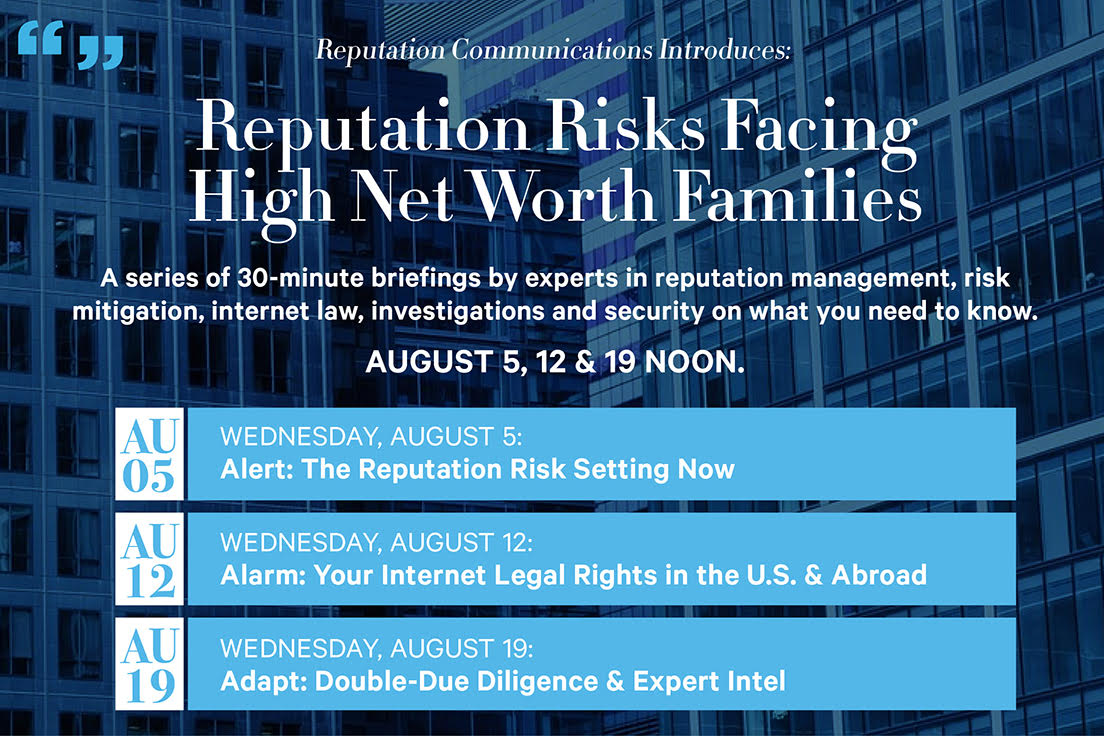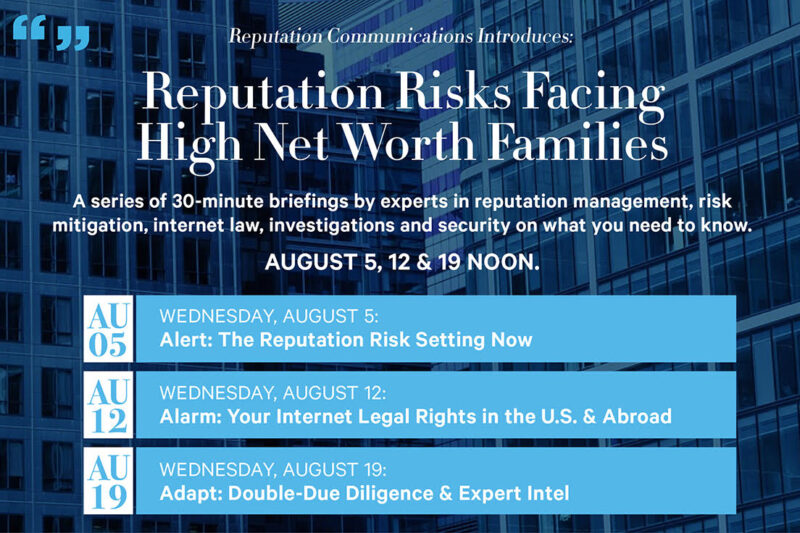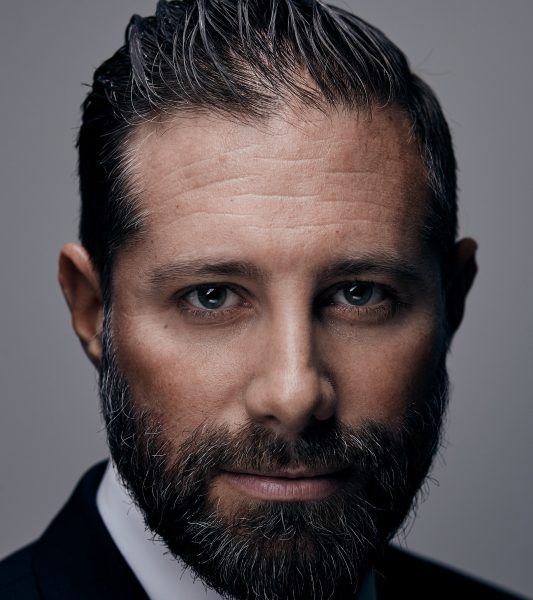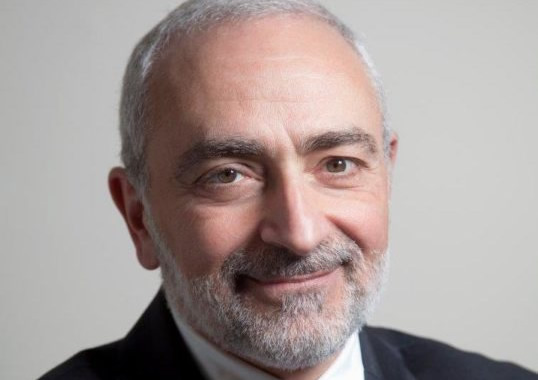
During a decade-long stretch of speaking with successful leaders seeking online reputation management (and being engaged by many), I’ve observed that the effect of reputational harm can be most acute when it threatens a new business venture.
When you are preparing to launch a start-up, you’ve often spent years developing an app, service or product. You have brilliant partners, a gifted team and the prospect of serious VC interest. During an immersion into preparing your new venture, what you may not anticipate is the amount of scrutiny you (and everyone associated with you) may face by prospective investors and partners, much of which you are not aware of.
Among the red flags they are looking for are signs or accusations that you (or your college-aged former self) have participated in behavior that may threaten the business in the future, including:
· Racist, sexist, or discriminatory language or acts, even as a joke
· The dissemination of sexually explicit material
· Threats of violence
· Other behavior that may be viewed as inappropriate by people vetting you
Not just you, either. Your whole team, as well as any partners.
Investors Avoid Reputation Risk
In today’s world, investors can’t afford to be associated with anyone with a record of those red flags. Their fear of potentially being liable in any lawsuit that may result from your past behavior, or your potential future behavior, is chief among their concerns. They don’t want the reputation risk, either.
We have seen tragic consequences for clients who have been perceived as being inappropriate in their language or behavior during college, upon graduation or later in their career. In more than one instance, clients have been named in baseless lawsuits, filed against them and later dropped by a party with malice, which still show up online. Some have also been cancelled or fired with no investigation or proof. This can happen over any number of perceived wrongdoings, and even if they did nothing wrong the harm to their reputation is the same as if they had engaged in the behavior of which they were accused.
High Cost of Perceived Wrongdoings
In these and other cases, high-caliber leaders were either unable to find a job or lost a job and could not attract a new one, despite years or decades of expertise in their industry. (Men, in my view, are especially vulnerable to such issues. In my article, The Reputation Risk of Being Male, I cite how even a simple misunderstanding can have grave professional and reputational consequences. But women are by no means immune from baseless allegations of wrongdoing.)
Deep-dive due diligence is increasingly done using AI and big data. Searches of you go back years, as long as the internet has been used, and once-buried information such as legal notices that were published in a long-dead newspaper, can suddenly become digitized and available online. Those pictures of you on college break 5, 10 or 20 years ago; the messy divorce; all your social media postings, litigation history, and complaints filed with regulatory authorities – literally anything you’ve done wrong can be unearthed and become a cause for concern.
For investors who are considering backing your venture, for potential partners whose reputation will be tied to yours, and for everyone you’ll lean on for help while you build your venture toward success, any cause for concern is one too many. New ventures are always a risk. A reputational challenge puts that risk outside nearly every appetite.
How to Prepare
However, if you have such issues and are preparing to launch a new venture, there are many ways to prepare. Even if you aren’t aware that you have these issues, approaching your personal online brand as if you do is the best positive publicity you can create for your business.
The first is to initiate a personal branding campaign to position positive, credible information about yourself and your achievements online. Next, if you are on social media, vet it to assess if it positions you for where you are now…and where you want to be. Making sure the Internet reflects all the positive things you accomplish – awards you win, important achievements, etc. – creates impressions that help to instill trust at the moment a potential client comes in contact with your brand.
Invest in the Same Reputational Deep Dive in Yourself that Potential Investors Will Do
Provide information as a thought-leader. Whether you’re a business or an individual in a professional space, you possess knowledge that potential clients need. Sharing that knowledge through articles and blog posts helps to establish credibility, and it is an easy way to allow clients to get to know you. It’s also an effective way to increase the volume of information available about you on the Internet. The more present you are, the more seriously partners and potential clients will take your new venture.
Finally, invest in the same reputational deep dive in yourself that potential investors will do. Find every negative piece of information, every rumor, every half-told story that paints you in a negative light. Those can be confronted through a multifaceted online reputation management strategy, and it’s always possible that there’s something out there that you don’t even know exists.
Reading my firm’s article, The Essentials: Online Reputation Management FAQs, is a good place to learn more about how an online reputation can be threatened and how to manage those threats. It is a highly ranked article on Google that provides step-by-step actions for ensuring your brand is top and center on Google, where the world (and AI) vets you.


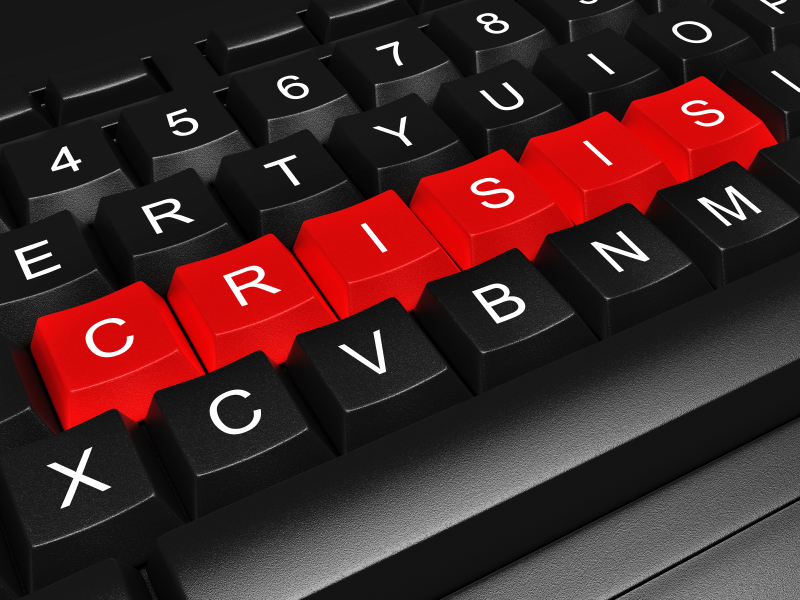


 As a transactional attorney he has been an Associate, Special Counsel or Partner at several of the leading transactional law firms in the United States, including Shearman & Sterling; Mayer, Brown & Platt; and Cadwalader, Wickersham & Taft. As an expert witness and/or consultant, he has worked with many of the preeminent litigation firms, and litigation departments of full-service firms, including Berger Montague; Chapman and Cutler; Kirby McInerney; Labaton Sucharow; Patterson Belknap; Robbins Geller; Scott + Scott; and Williams & Connolly.
As a transactional attorney he has been an Associate, Special Counsel or Partner at several of the leading transactional law firms in the United States, including Shearman & Sterling; Mayer, Brown & Platt; and Cadwalader, Wickersham & Taft. As an expert witness and/or consultant, he has worked with many of the preeminent litigation firms, and litigation departments of full-service firms, including Berger Montague; Chapman and Cutler; Kirby McInerney; Labaton Sucharow; Patterson Belknap; Robbins Geller; Scott + Scott; and Williams & Connolly. 
